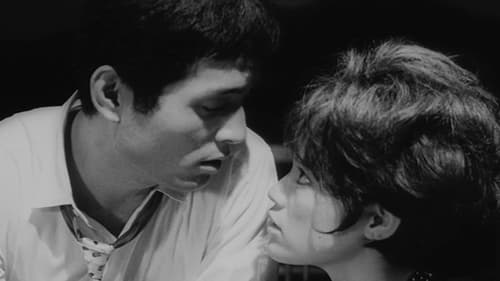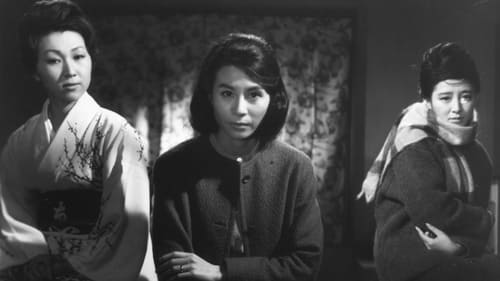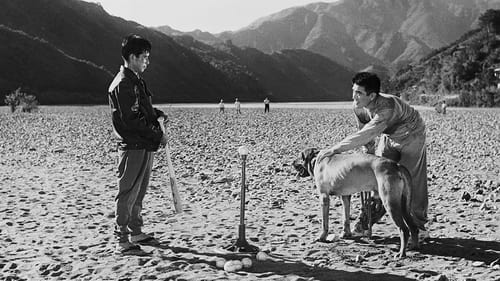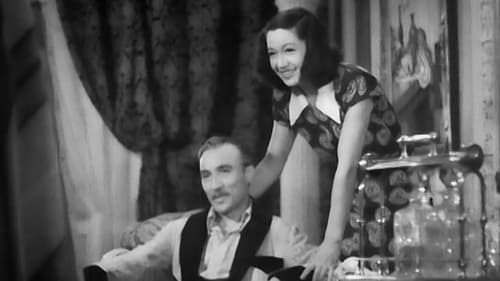
Aya
Keiko y Saeko son una pareja de hermanas que ayudan económicamente a sus padres trabajando en una fábrica local. Además, tienen que aguantar la carga de un padre chapado a la antigua, que presiona a Keiko para que se case con un buen partido y así salve el negocio familiar. Ella se siente atraída por un compañero de trabajo pobre, pero también desea seguridad económica.

En su lecho de muerte, un rico empresario anuncia su intención de dividir su fortuna entre tres hijos ilegítimos que se encuentran en paradero desconocido. La situación es propicia para que un grupo de abogados elabore un plan para apoderarse del dinero sirviéndose de impostores y del chantaje.

After moving in to their dream home, newlyweds decide to rent out their second floor to save money. They soon discover the woe of being landlords.

Manao Horiuchi movie

One week into newlywed Teiko Uhara's marriage, her husband, Kenichi, leaves on a short business trip and never returns. Teiko travels across Japan to search for him, and along the way discovers some surprising facts about her husband's past. With only a pair of old photographs among his belongings to go off of, Teiko tries to figure out what has happened to him.

A masterpiece depicting the true feelings, grief and joy of a woman. An adaptation of the novel of the same name by Yasushi Inoue.

A talent scout moves sharply, dead-set on signing a promising athlete to the baseball team the Toyko Flowers.

Hatsue Mikoda
A botanist woos the secretary of an industrialist whose company threatens the local water supply.

Machiko Ujiie and Haruki Atomiya first meet and fall in love on Ginza’s Sukiyabashi Bridge during the Great Tokyo Air Raid in March 1945. Machiko and Haruki pledge to meet again at the bridge in six months but part without asking each other’s names.

Motoko Fujikawa works in the Seisen Church as an assistant to pastor Maki Inokichi. Motoko falls in love with Inokichi's virtuous character and devotes herself to the rehabilitation of a delinquent girl, gradually finding her job at the institution more worthwhile than the marriage recommended by her parents. Meanwhile, inside Inokichi's heart a flame of unknowing love for the single-minded Motoko begins to burn...

A young student falls into a hopeless romantic attraction to a sick girl, whom he can only see from afar.

The Ueki family may not be wealthy, but smiles are never in short supply. The father is awarded prize money for 25 years of service to his workplace, but has it stolen on the way home from the ceremony...

Orie Noma
Tokiko is a mother patiently waiting for her husband's return from the war when her 4-year old son becomes ill. She takes him to the doctor for treatment but has no way of paying. She resorts to prostitution. One month later her husband returns from WWII to find his desperate wife, who tells him the truth. Together they must deal with the consequences.

Tras la Segunda Guerra Mundial y la derrota de Japón, la aristocrática familia Anjo se encuentra arruinada. Para saldar sus deudas deben vender su mansión y deciden celebrar una última fiesta... Uno de los clásicos del cine japonés filmado durante la ocupación americana. Película de tintes sociales realizado por el izquierdista Yoshimura con guión de su cuñado, el luego célebre cineasta Kaneto Shindô. Protagoniza la mítica Setsuko Hara.

Japanese movie

Tanehachi
Set against the backdrop of an imperial victory in the civil war leading up to the Meiji Restoration, Fallen Blossoms tells the story of the sorrows of women in a geisha house in Kyoto by recounting the relationships of its inhabitants.

The prewar film Haha no kyoku (Mother's Melody, 1937) is known for its place in Japanese film history as one of the top three melodramas as well as for its authorship: Yamamoto Satsuo is an auteur not usually associated with filming melodramas. Yamamoto made the film right after he moved, along with his mentor Naruse Mikio, to the Toho film company. A number of subsequent postwar mother's films adopted some of its essences, making it a genre-defining moment in Japanese cinema. This great melodrama is atypical of Yamamoto's output, much of which deals with political corruption and inequities within social institutions and offers a strong anti-establishment appeal.

Japanese domestic drama.














